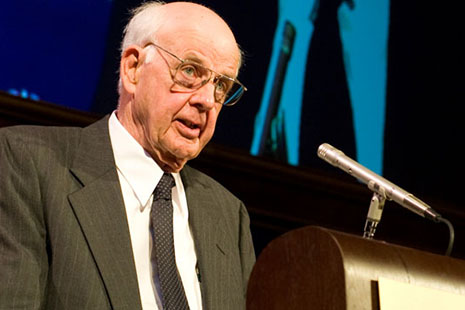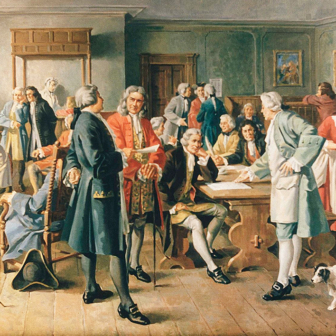It All Turns on Affection: The Jefferson Lecture and Other Essays
By Wendell Berry | Counterpoint | $29.95
The Future: Six Drivers of Global Change
By Al Gore | Random House | $34.95
“THINK global, act local.” When I first encountered this slogan, posted in the back window of a car, it made a striking impression. It encapsulated a principle that at the time – somewhere in the late 1970s – seemed absolutely right. The expression became a founding doctrine of Friends of the Earth, and lodged somewhere deep in the consciousness of most ecologically minded people. Recently, though, it has started to come under scrutiny. What does it really amount to, as exhortation or advice? And what of the somewhat glib way it allocates the relative spheres of thought and action, planet and neighbourhood?
According to the veteran American philosopher-conservationist Wendell Berry, “such lazy language does harm.” He makes this comment in an essay published in his new book, which takes its name from the title of his 2012 Jefferson lecture, “It All Turns on Affection.” Berry’s theme, here and in most of his writing, is the growth of collective wisdom through an enduring commitment to locality.
The Jefferson lecture, sponsored by the US National Endowment for the Humanities, is one of the most prestigious occasions on the American literary calendar. When the endowment’s chair, Jim Leach, travelled to Berry’s farm in Kentucky for some preliminary discussions, he half jokingly expressed the hope that its message would be that Henry David Thoreau was alive and well. “My lecture is going to disappoint you, I’m sorry to say,” was Berry’s reply. Thoreau remains a definitive influence on the poetics of place in America, he acknowledged, but he didn’t stay very long at Walden Pond. He wasn’t a true local, not when considered against the model of Berry’s own grandfather who “did not participate in the least in what we call mobility.”
The lecture makes good reading, but even better listening. His voice is tempered with quiet deliberation, and the easy southerner’s drawl creates a slight drag on the pace of delivery, reflecting the mental pace of a seventy-nine year old who, by his own admission, has always been a slow thinker. There is, throughout, a poet’s command of rhythm and cadence and an economy of language that belongs to a natural orator.
Berry starts by telling a story about the sale of his grandfather’s tobacco crop during one of the worst years of the depression, but it’s a tale of a kind all too familiar to many Australian farmers today. Many months of family income were dependent on the sale, just as the crop represented many months of labour. But tobacco prices that year were affected by new corporate influences on supply and demand, and when the crop was auctioned at the Louisville markets it fetched barely enough to pay the costs of transporting it from the farm in Henry County. That experience, says Berry, has reverberated through several generations of the family.
When Wendell Berry addresses an audience, it knows quite literally where he is coming from. His wider message about the state of the nation and the planet – about the corporate economy, the failure of ecological stewardship and the deteriorating quality of public dialogue – is grounded in local intelligence. It’s a kind of intelligence that has traditionally been “common” or communal, and Berry wants to restore that commonality as a precondition for any attempt to redress the ills of the world at large.
Berry’s home ground in Henry County is just 300 kilometres or so north of Carthage, Tennessee, where Al Gore spent much of his childhood on a family farm. On the face of it, Berry and Gore are fighting on the same front: Gore’s campaign against the global industrial system that is driving climate change, is motivated by essentially the same principles and concerns as Berry’s campaign for restoring the local economy. Yet as thinkers and communicators, they are poles apart.
At the start of his documentary An Inconvenient Truth (2006), Al Gore takes us to an idyllic scene on a riverbank, evoking the sounds of birds and tree frogs, rustling leaves, the easy flow of the water and the soft give of the mud. “And all of a sudden,” he tells us, “it’s a gear-shift inside you, and it’s like taking a deep breath and saying, ‘Oh yeah. I forgot about this.’” An Inconvenient Truth was designed to promote widespread awareness of the dangers of global warming, and Gore engaged a team of communication specialists to advise on techniques for engaging varied audiences. A key element of the strategy was to personalise and localise the issues.
Although he seems genuinely committed to this strategy, Gore’s own enthusiasm sparks up when he moves to the big picture. From the river bank, he goes directly to the other end of the spectrum, with “the first picture of the earth from space that any of us ever saw,” taken during the Apollo 8 mission in 1968. His next image from the Apollo 8 mission is one that became known as Earthrise. “That one picture,” says Gore, “exploded in the consciousness of humankind,” inspiring the environmental movement to a whole new level of awareness. As the lecture continues, he aims to dazzle this global consciousness further with an array of big picture statistics and cliff-front graphs, at one point making an ascent on a scissor lift to demonstrate how far off the scale the most recent climate statistics have gone.
Graphs and statistics are nothing short of a passion for Gore, one that is indulged to the full in his recently released book The Future: Six Drivers of Global Change, where the vision is so expansive that nothing so local as a riverbank remains visible on the radar. The book is an ambitious and fiercely committed attempt to map the world as we are not quite prepared to know it: as a planet dominated by corporate interests (“Earth Inc”), spanned by a worldwide web of communications (“Global Mind”), subject to tectonic shifts in the geopolitical landscape, plundered through an imperative for unlimited growth, and whose biosphere is in the process of being transformed by cybernetics and genetic engineering (“Life Inc”). These all contribute to the trend towards global warming, which is the ultimate driver of change.
Gore’s chapters focus on these drivers, and each is prefaced by a flow chart mapping out a range of factors as lines feeding through a conceptual switching point. Sustainable capitalism, the concentration of wealth, increased living standards, nanotechnology and shifting international trends of supply and demand feed into the central theme of “Earth Inc,” and emerge as afield of worsening consequences: advanced automation, artificial intelligence, outsourcing and offshoring, trading in derivatives, peaks and flash crashes on the stockmarket.
I can’t pretend to discover any very coherent logic in this, and found myself reading the book less for its argument than for a kind of dramaturgy that seems to control its design. The Future is not just about the state of the world, but also about what we can do to steer it away from the drastic course on which it is set. Gore purports to offer the vision of an optimist: rallying against the formidable and increasingly trans-human forces of international capitalism is the emerging determination of an intelligent public, brought into community through the worldwide web. “The outcome of the struggle to shape humanity’s future,” Gore pronounces in his conclusion, “will be determined by a contest between the Global Mind and Earth Inc.”
At this point, scepticism kicks in hard, and I return to Wendell Berry, who will have no truck with the Global Mind, or the kinds of data on which it is fed. In his opinion, we humans are not much to be trusted with statistical knowledge, and thinking global may be a delusory process, a kind of cognitive intoxication that is ultimately not much good for us. The reality that is responsibly manageable by human intelligence, he says, is much nearer in scale to a small rural community or urban neighbourhood than to the globe. And he quotes E.M. Forster: “It is the vice of a vulgar mind to be thrilled by bigness.”
In Gore’s defence, it must be said that what he is describing is a reality, albeit one that belongs on a different plane of awareness from the reality that shapes everyday lives in neighbourhoods and on farms. When several houses in your street are boarded up because those who lived in them were victims of the sub-prime mortgage scam, or when the once-in-one-hundred-years flood hits your town two years running, the wider scale of the causal factors has to be reckoned with. The material immediacy of the street scene and the abstractions of global trending are both present. Standing on the viewing deck of the Oriental Pearl Tower in Shanghai, you can see a forest of skyscrapers stretching out towards the horizon, but at ground level, mammalian life continues. A man runs a food stall from a portable brazier that carries a single pot of boiling noodles; women shell mounds of soy beans on the pavement; a lost dog sniffs in the gutter.
Berry finds “an irreconcilable contradiction” between the natural world and the engineered world of global capital, but it is a capacity unique to the human mind to straddle these two frames of reality. Since the contradiction is our heritage, the challenge is to hold the balance effectively, in thought and in action. The habit of thinking globally, when it is not countered by any sustained mental engagement with the place you live in, can become both hubristic and somewhat desperate. When you survey the whole scene, as Gore does, and start to see the world as a giant machinic entity driven by forces beyond the control of governments, let alone individuals, declarations of optimism start to wear a little thin.
By contrast, the humility of local consciousness is curiously restorative. Berry quotes one of his own mentors, early twentieth century conservationist Aldo Leopold. “A land ethic changes the role of Homo Sapiens from conqueror of the land community to plain member and citizen of it.”
Al Gore’s bid to create a chorus of raised voices to save the planet may be a gravely mistaken enterprise. We were never going to have the luxury of consensus on climate change. All that data, all those graphs with timelines stretching back into pre-history and out to the end of this century, are an open invitation to dissenters who are motivated not by nefarious personal investments or campaigns of misinformation but by a much simpler and more honest kind of scepticism. Who in human history ever made accurate predictions fifty or a hundred years ahead? And how many times in our past has the world been declared on the brink of disaster?
What is actually happening is that weather events are overtaking us. Whatever we think about their global implications, they are forcing us to change our way of life. Last month I wrote for Inside Story about the Queensland floods, reflecting on how they were isolating communities all around the state as supply lines were cut. Today, as I write this, there is news of blizzard conditions isolating towns and neighbourhoods across the north-eastern states of America. You cannot conduct a global economy when planes are grounded, communication lines are down and you can’t move containers to their destination. When it comes to the crunch, as Wendell Berry says, “we are all instructed by ecological disaster and mortal need.” •




